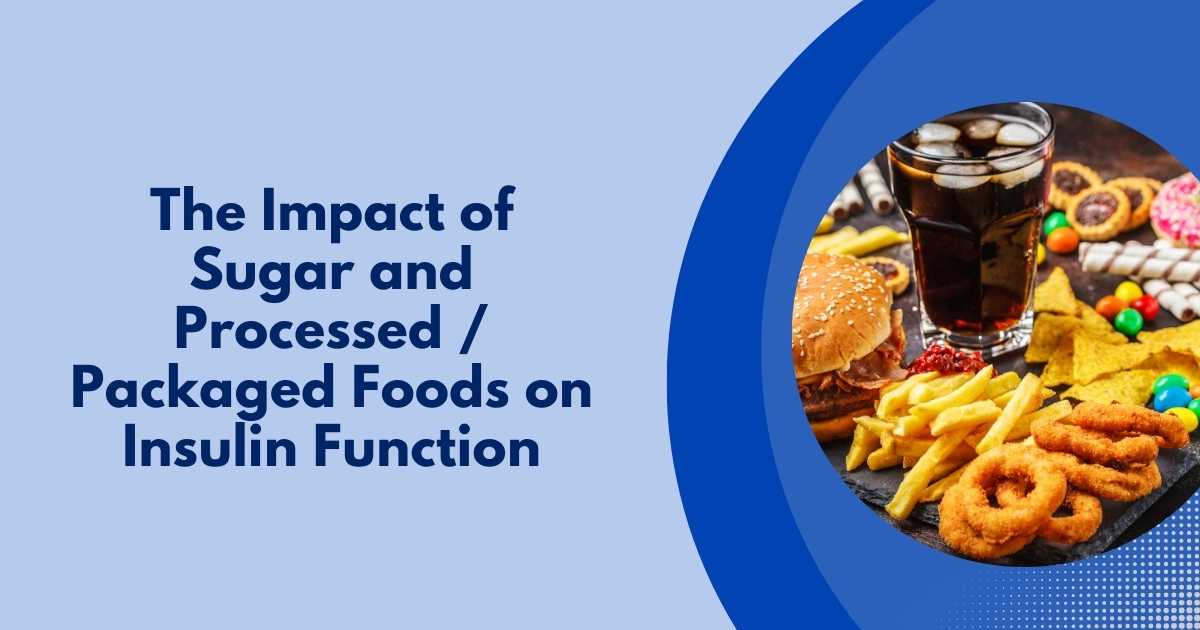The Impact of Sugar and Processed / Packaged Foods on Insulin Function
Insulin, a hormone generated by the pancreas, is essential for controlling blood sugar levels. However, a modern diet heavy in sugar, processed foods and packaged foods like biscuits, bakery items, chips, etc, can have a major impact on insulin function. In this article, we will look at how these dietary choices affect insulin levels and, as a result, our general health.
Understanding the Role of Insulin
Insulin functions as a key, unlocking cells and allowing glucose to enter for energy synthesis. When we eat food, particularly carbs, our bodies release insulin to regulate the flow of glucose into the bloodstream.
The Sugar Dilemma: How Excess Sugar Affects Insulin
1. Insulin Resistance
Excess sugar consumption can cause elevated sugar levels in the blood which in turn causes insulin resistance. This condition occurs when cells become less sensitive to insulin’s signals.
2. Increased Insulin Production
To compensate for the prevailing insulin resistance, the pancreas generates more insulin, resulting in a loop of high insulin levels.
Processed Foods and the Insulin Rollercoaster
1. Rapid Blood Sugar Spikes
Processed foods frequently contain refined carbs, which quickly raise blood sugar levels, causing a surge in insulin release.
2. Limited Nutrient Content
Many processed foods are deficient in critical nutrients, leading to an imbalance in the body’s ability to handle insulin.
The Domino Effect: Consequences of Disrupted Insulin Function
-
Weight Gain and Obesity
Insulin resistance is associated with weight gain, particularly in the abdomen, and is a prelude to obesity.
-
Type 2 Diabetes Risk
Prolonged insulin resistance can lead to type 2 diabetes, a chronic illness marked by high blood sugar levels.
Strategies for Mitigating the Impact
-
Prioritize Whole Foods
Choose whole, unprocessed foods for a slow and constant release of glucose, reducing insulin spikes.
-
Balanced Meals
To maintain stable blood sugar levels, eat a variety of complex carbohydrates, proteins, and healthy fats at each meal.
The Role of Fiber in Sugar Metabolism
Slowing Digestion: Fiber-rich foods decrease carbohydrate digestion and avoid blood sugar rises.
Promoting Satiety: Fiber promotes fullness and reduces overeating and sugar consumption.
Making Informed Food Choices
- Read Labels
Checking ingredient lists for various names of added sugars can help you detect hidden sugars in processed foods.
- Limit Sugary Beverages
Sugary beverages can quickly raise blood sugar. Choose water, herbal teas, or liquids without additional sugars.
Sugar and processed foods have a significant impact on insulin function, which can have long-term ramifications for human health. We may reduce insulin resistance by being attentive of our dietary choices, prioritizing whole foods, and knowing the significance of fiber in sugar metabolism. Making intelligent food choices is important not only for weight control, but also for preserving overall health and preventing chronic illnesses caused by altered insulin function.

